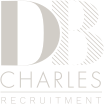We’ve all been there: you come out of an interview feeling pretty positive about your chances, only for the company to cease communication completely. No follow-up emails, no responses on LinkedIn, and zero feedback. Or, from a business’ perspective, a candidate simply doesn’t show up for their interview.
Job ghosting is incredibly frustrating, no matter which side you’re on, so why does it happen so often? According to a Glassdoor survey, 34% of candidates don’t receive any feedback after an interview. And a mind-blowing 84% of UK job seekers have admitted to not showing up for an interview at all — without giving the employer any notice.
Poor conduct during the recruitment process is a red flag, and it could impact your hiring prospects further down the line. Here are some of the top warning signs to look out for both for businesses and for candidates.
Company Red Flags
Ghosting
A huge number of candidates — 63% to be precise — say they are dissatisfied with the level of communication they receive from companies after applying for a job. Ghosting can happen for any number of reasons (time constraints, indecision, jobs being put on hold), but it’s almost guaranteed to leave a candidate with a bad impression.
And that impression can spread; 72% of job seekers say that they share bad experiences online, so you could be damaging your brand by ghosting candidates, even if they’re not right for the job.
On the flipside, 70% of candidates say that receiving feedback would leave them with a positive view of a company, even if they were rejected. Plus, 79% say they’d be more likely to reapply to a company if they received feedback on a previously unsuccessful interview. So don’t burn those bridges!
Lack of Transparency
Vague job descriptions, missing salary information, and unclear communication around the hiring process can all be red flags for candidates when choosing their next workplace. A lack of transparency suggests that a company has something to hide, and candidates are more likely to fill those gaps with negative notions than good ones.
Provide clear and realistic job descriptions, honest salary ranges, and transparent outlines of your hiring timeline to attract top talent.
Frustrating Timelines
Talking of timelines, a hiring process that takes too long can be very off-putting to job seekers, increasing the risk that you’ll lose your preferred candidate to someone else. Overly long recruitment times or frequently rescheduled interviews can also cost money, leave your existing team with too much work to cover, and make your company look indecisive or disorganised.
That being said, rushing the process (or your candidate’s decision) is a red flag, too. Trying to do things too quickly could land you with the wrong person for the job, resulting in high turnover, decreased performance, and sunk resources.
Planning out your process step-by-step — or working with a trusted recruiter — gives you time to do things properly, while also making sure you’re prepared to snap up the perfect candidate as soon as you find them.
Candidate Red Flags
Ghosting
Ghosting isn’t just for businesses. As we mentioned above, UK job seekers are not above skipping out on job interviews, and this problem looks set to get worse. In one survey, an even greater number of Gen Z candidates (93%) have ghosted interviews without letting the employer know beforehand.
It should go without saying, but ghosting as a candidate is just as bad for your professional reputation as it is for businesses.
Lack of Preparation
Failing to prepare for an interview is as much a waste of your own time as it is the interviewer’s. Make sure you’re prepped on your own CV and past experience, as well as on the business itself. Answers that are inconsistent with your application information or that demonstrate a lack of knowledge of the company will raise red flags with any potential employer.
That said, even the best candidates can be thrown off by that moment at the end when the interviewer says: ‘Is there anything you want to ask us?’ Not having questions prepared shows a lack of initiative or, worse, a lack of interest. It also means you miss out on the opportunity to get further clarification on the role or iron out any doubts you might have about the job.
Unprofessional Behaviour
From turning up late to having zero enthusiasm in the interview, poor candidate conduct is a one-way ticket to job rejection. Rudeness or bad-mouthing your former boss or colleagues is also a big red flag for an employer. Even if you were unhappy in your last position, presenting those issues in a negative light can drag you down too. It might look like you failed to find a solution to your problems or that your communication and interpersonal skills aren’t up to scratch.
While many workplaces and interview processes are more relaxed now than they used to be, a level of professionalism will always stand you in good stead. When in doubt, remember the 3 Ps: be punctual, polite, and prepared.
Enjoy Green Flag Recruitment
Working with a tested and dedicated recruiter is one of the best ways to avoid all of these red flags. Here at DB Charles, we take a personal approach to helping both businesses and candidates perfect the recruitment process from application to hiring. Want to find out more? Let’s talk.












